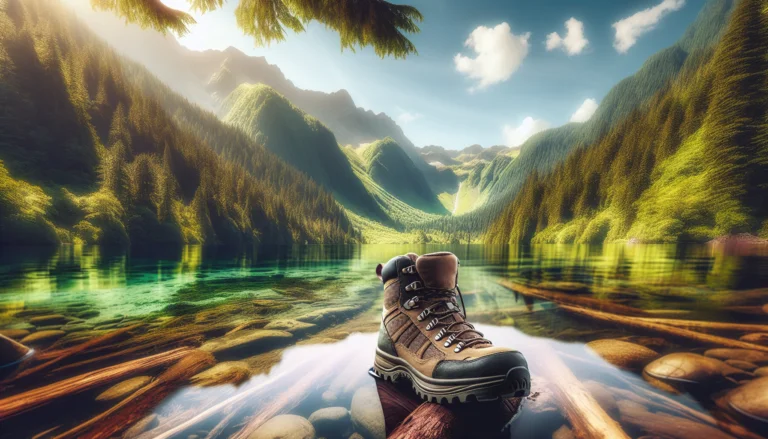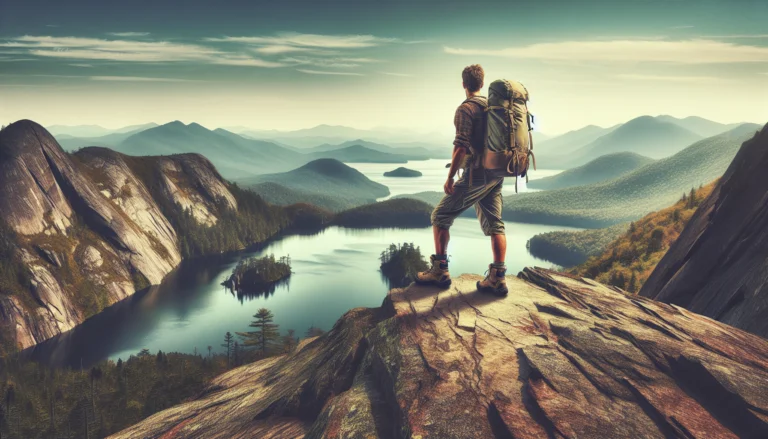10 Essential Travel Tips For First-Time Backpackers
Have you always dreamt of embarking on an adventurous backpacking journey but feel unsure about where to start? Fear not, as this article is here to guide you through 10 essential travel tips for first-time backpackers. Whether you’re planning a weekend getaway or a long-term expedition, these tips will help you make the most of your backpacking experience. From packing smart to staying safe, you’ll find valuable advice that will help you navigate unfamiliar terrains and immerse yourself in new cultures. So grab your backpack and get ready to explore the world with confidence!
Prepare before you Go
Start planning early
When it comes to backpacking, preparation is key. Start planning your trip well in advance to ensure a smooth and enjoyable experience. Research your destination, make a list of things you would like to do and see, and decide on a budget. By starting early, you will have enough time to save money, book accommodations, and make any necessary arrangements.
Research on the destination
Before embarking on your backpacking adventure, take the time to research your destination. Learn about the local culture, customs, and traditions, as well as the climate and weather conditions. This will help you pack appropriately and avoid any cultural misunderstandings. Additionally, familiarize yourself with the must-see attractions and hidden gems, so you can make the most of your time.
Reach out to seasoned backpackers for tips
It’s always beneficial to seek advice from those who have already experienced backpacking. Reach out to seasoned backpackers, either through online forums or social media groups, and ask for their tips and recommendations. They can provide valuable insights into the best places to visit, local transportation options, and safety tips. Their firsthand knowledge can greatly enhance your backpacking experience.
Check visa and immigration rules
To avoid any last-minute surprises, make sure to check the visa and immigration rules of your destination country well in advance. Determine if you need to apply for a visa before your trip or if you can obtain one upon arrival. It’s important to ensure your passport is valid for at least six months beyond your planned departure date. By understanding the visa requirements, you can avoid any unnecessary stress or complications during your trip.
Packing Smart
Avoid overpacking
When it comes to backpacking, less is more. It’s essential to pack smart and avoid overpacking. Before you start filling your backpack, make a list of all the items you think you’ll need, then go through it again and eliminate anything that isn’t truly essential. Remember, you’ll be carrying this backpack for long periods, so the lighter it is, the more comfortable your journey will be.
Carry only essential items
While it may be tempting to bring along non-essential items, especially if you’re worried about being underprepared, resist the urge. Be realistic about what you actually need for your trip and leave room in your backpack for souvenirs or any additional items you may acquire along the way. Stick to the basics like clothing, toiletries, and any necessary electronics.
Packing lightweight clothing
When it comes to clothing, opt for lightweight and versatile items that can be layered. This will allow you to adapt to different climates and easily mix and match your outfits. Be sure to check the weather conditions of your destination and pack accordingly. Don’t forget to include comfortable walking shoes and a waterproof jacket for unpredictable weather.
Invest in a good backpack
Your backpack will be your constant companion throughout your entire backpacking journey, so it’s crucial to invest in a good quality one. Look for a backpack that is durable, lightweight, and has multiple compartments for easy organization. Adjustable straps and good weight distribution will also make a huge difference in your comfort level while trekking.
Dealing with Money
Carry small change
When traveling, it’s important to carry small change with you. This will come in handy for tipping, using public restrooms, or purchasing small items. Keep a separate coin pouch for easy access to your coins and ensure you have them in the local currency.
Inform your bank about your travel
Before you embark on your backpacking adventure, inform your bank about your travel plans. This will prevent any unexpected card blocks or suspensions due to suspicious activity from a foreign country. Let them know which countries you will be visiting, as well as the estimated duration of your trip. It’s also a good idea to make a note of your bank’s customer service numbers in case of any issues.
Have a backup plan for emergency funds
While backpacking, it’s always wise to have a backup plan for emergency funds in case you lose your wallet or encounter any unforeseen circumstances. Consider carrying a secondary debit or credit card, or even some cash tucked away in a hidden pocket. Having access to emergency funds will provide peace of mind and ensure you can handle any unexpected situations that may arise.
Use local currency
When traveling, it’s generally more convenient and cost-effective to use the local currency of your destination. While credit cards are widely accepted in many places, there may be instances where cash is preferred or necessary, especially in remote areas or small establishments. Exchange your currency at reputable exchange offices or withdraw cash from ATMs to get the best rates.
Ensure your Safety
Keep emergency contacts
Before embarking on your backpacking trip, make a note of emergency contact numbers for both local authorities and your embassy. Keep this information stored in your phone, write it down in your travel diary, and share it with a trusted friend or family member back home. In case of emergencies, you’ll have the necessary information readily available.
Take care of your backpack
Your backpack is not only your storage unit but also your lifeline during your backpacking adventure. Take care of it by ensuring it is properly secured at all times. Use padlocks to secure zippers and consider investing in a rain cover to protect your belongings from the elements. Avoid leaving your backpack unattended in public areas to minimize the risk of theft.
Be cautious in crowded places
Crowded places, such as markets, tourist attractions, or public transportation, can be a hotspot for pickpockets and theft. Be aware of your surroundings and take necessary precautions, such as keeping your backpack in front of you, carrying your valuables in a money belt, and avoiding busy areas during peak times. Trust your instincts and if something feels off, move to a safer location.
Protect valuables
While it’s important to travel light, it’s equally important to protect your valuable belongings. Keep your passport, cash, credit cards, and other important documents in a secure and easily accessible place. Consider using a neck wallet or a hidden pocket inside your clothing to keep them safe. Remember to take photocopies of your important documents and store them separately in case of loss or theft.
Staying Healthy
Keep yourself hydrated
Staying hydrated is crucial, especially when traveling to new climates or engaging in physical activities. Carry a reusable water bottle and make it a priority to drink plenty of water throughout the day. If tap water is not safe to drink, purchase bottled water from reliable sources. Dehydration can lead to fatigue, headaches, and other health issues, so make it a habit to hydrate regularly.
Carry a basic medical kit
While you hope to have a healthy journey, it’s always wise to be prepared for minor illnesses or injuries. Pack a basic medical kit with essentials such as adhesive bandages, antiseptic wipes, pain relievers, and any necessary prescription medications. You can also consider including items like sunscreen, insect repellent, and motion sickness tablets, depending on your destination and personal needs.
Handle food with care in unfamiliar places
Trying local cuisine is one of the highlights of backpacking, but it’s important to be cautious, especially when eating in unfamiliar places. Stick to reputable restaurants or street food vendors with good hygiene practices. Avoid consuming undercooked or raw foods, and take care with fruits and vegetables that may have been washed in unsafe water. Trust your instincts and if something doesn’t seem right, opt for a different option.
Try to remain active and fit
Backpacking often involves long days of exploring and adventures in nature. It’s important to maintain a good level of physical fitness to fully enjoy these experiences. Take regular walks or engage in light exercises to keep your body active. Explore hiking trails or participate in local activities that allow you to stay fit while immersing yourself in the local culture. Your overall well-being and enjoyment of the trip will greatly benefit from staying active.
Adapting to Local Cultures
Learn a few basic words in the local language
When visiting a foreign country, it’s always appreciated to make an effort to learn a few basic words and phrases in the local language. Simple greetings like “hello,” “thank you,” and “please” can go a long way in showing respect and building connections with locals. Carry a pocket-sized language guide or use language-learning apps to enhance your communication skills.
Dress appropriately
Respecting local customs and traditions includes dressing appropriately for the culture. Do some research on the dress codes observed in your destination country and pack accordingly. If visiting religious sites, cover your shoulders and knees as a sign of respect. By adhering to the local dress norms, you not only show respect to the culture but also avoid unwanted attention or discomfort.
Respect local customs and traditions
Every country has its own unique customs and traditions, and it’s important to respect and honor them while backpacking. Take the time to learn and understand the local customs, such as greetings, gestures, and eating habits. Be mindful of cultural norms about personal space, public displays of affection, and acceptable behavior. By showing respect, you will have a more meaningful and enjoyable experience.
Interact with locals
One of the best aspects of backpacking is the opportunity to interact with locals and learn about their way of life. Don’t be afraid to strike up a conversation, ask for recommendations, or participate in local activities. Locals can provide valuable insights, hidden gems, and unique experiences that you won’t find in guidebooks. Embrace the opportunity to connect with people from different cultures and make lasting memories.
Finding Accommodation
Choose hostels for socializing
When it comes to accommodation, hostels are a popular choice for backpackers. Opting for a hostel instead of a hotel allows you to meet fellow travelers and make new friends. Hostels often offer common areas, communal kitchens, and organized activities, creating a social atmosphere. Choose hostels with positive reviews, good security measures, and locations that suit your travel plans.
Consider safety and location while choosing accommodation
While socializing is important, safety should always be a top priority when choosing accommodation. Look for accommodations with good security measures, such as lockers, CCTV cameras, and secure entrances. Additionally, consider the location. It’s beneficial to stay in a central area that allows easy access to transportation, attractions, and amenities.
Book in advance
To ensure availability and get the best rates, it’s recommended to book your accommodation in advance. This is especially important during peak travel seasons when popular hostels and hotels can quickly fill up. Research your options, read reviews, and make reservations accordingly. Booking in advance will give you peace of mind and allow you to focus on enjoying your backpacking adventure.
Check hostel or hotel reviews
Before making a reservation, take the time to read reviews of the hostel or hotel you’re considering. Websites and apps like TripAdvisor, Booking.com, or Hostelworld provide valuable insights from fellow travelers. Pay attention to the overall rating, comments about cleanliness, staff friendliness, and any other factors that are important to you. Reviews can give you a realistic idea of what to expect and help you make an informed decision.
Using Local Transportation
Test the local mode of transportation
As a backpacker, utilizing local transportation is often the most cost-effective way to get around. Familiarize yourself with the local modes of transportation available, such as buses, trains, trams, or ferries. Test them out, learn the routes, and understand the ticketing systems. Not only will this save you money, but it will also provide an authentic experience of the local way of life.
Use shared taxis or public transport for cost savings
Shared taxis or public transportation options are often cheaper than private taxis and can help you save money during your backpacking trip. Research the local transportation options and compare prices. Taxis or ridesharing services may be convenient for shorter distances, but for longer journeys, consider taking a bus or a train. Not only will you save money, but you will also have a chance to interact with locals.
Understand local transport rules
Different countries have different rules and etiquette when it comes to using public transportation. Take the time to understand the local transport rules and follow them accordingly. For example, some places may require you to validate your ticket upon boarding a bus or train, while others may have specific designated areas for women or certain age groups. Avoid fines or unnecessary hassle by being aware of and respecting the local transport rules.
Keep maps for guidance
While smartphones and GPS apps are convenient, it’s always a good idea to have physical maps or guidebooks as backup. Sometimes, you may find yourself in areas with limited internet connectivity or battery power. Having a physical map will help you navigate through unfamiliar streets and find your way to your destination. Additionally, maps can provide a broader overview of the area, allowing you to plan your routes more effectively.
Food and Beverages
Try local cuisine
One of the joys of backpacking is experiencing new tastes and flavors. Embrace the opportunity to try the local cuisine of your destination. Visit local markets, street food stalls, and restaurants where locals dine. Seek out traditional dishes and culinary specialties that define the region. Not only will you broaden your culinary horizons, but you will also support local businesses and gain a deeper understanding of the culture through food.
Find restaurants where locals dine
To have an authentic dining experience, venture beyond tourist hotspots and seek out restaurants where locals eat. These establishments often offer a more authentic and affordable culinary experience. Look for cues like crowded restaurants, local language menus, or recommendations from trusted sources. By dining where locals dine, you’ll have a chance to savor traditional flavors and possibly even strike up conversations with friendly locals.
Remember to drink bottled water
Staying hydrated is essential, and it’s important to ensure the water you drink is safe. In many countries, tap water may not be suitable for drinking due to different sanitation standards. Always drink bottled water from reputable brands to avoid gastrointestinal issues. Check the seal of the bottle to ensure it hasn’t been tampered with. If you’re unsure about the water quality, consider using water purification tablets or boiling water before consumption.
Avoid street food if hygiene is questionable
While street food can be incredibly delicious and a highlight of backpacking, it’s important to exercise caution, especially if the hygiene standards are questionable. Look for street food vendors that have a clean and organized setup, maintain good food handling practices, and have a steady stream of customers. If something doesn’t seem right or you have concerns about food safety, it’s best to opt for food from established eateries.
Documenting your Journey
Keep a travel diary
A travel diary is a wonderful way to document your backpacking journey. It allows you to preserve memories, express your thoughts and emotions, and reflect on your experiences. Write about the places you’ve visited, the people you’ve met, and the adventures you’ve had. Include details like the local food you’ve tried, cultural observations, and any funny or interesting anecdotes. Your travel diary will become a cherished keepsake of your journey.
Photography is a great way to document
Capture the essence of your backpacking adventure through photography. Take your camera or smartphone along and capture the beautiful landscapes, vibrant markets, and unforgettable moments. Photographs serve as visual reminders of your journey and allow you to share your experiences with friends and family. Don’t forget to also include yourself in some of the shots to have a record of your presence in these incredible places.
Maintain digital backups of your documents
Losing important documents while traveling can be a nightmare. To safeguard against this, maintain digital backups of all your essential documents. Make scanned copies of your passport, visa, travel insurance, and any other important identification or travel documents. Store them in secure cloud services or email them to yourself. This way, even if your physical documents are lost or stolen, you can easily access the digital versions.
Share your experiences on social media
Social media platforms are a great way to share your backpacking experiences with friends and family, as well as connect with fellow travelers. Use platforms like Instagram, Facebook, or a travel blog to share your photos, stories, and travel tips. You can inspire others to embark on their own backpacking adventures and create a virtual community of like-minded travelers. Just remember to be mindful of your privacy settings and be respectful of local customs regarding photography.
By following these essential travel tips, you’ll be well-prepared and equipped to embark on your first backpacking adventure. From planning and packing to staying safe and embracing local cultures, each aspect plays a crucial role in ensuring a memorable and enjoyable journey. So, embrace the excitement, step out of your comfort zone, and prepare for a truly transformative experience as you embark on your backpacking adventure.







